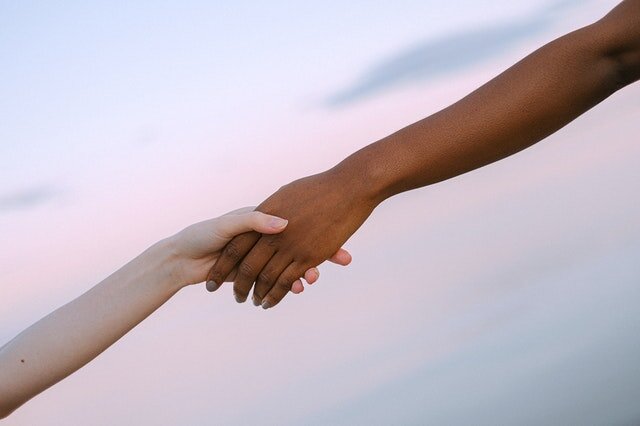If you have been paying attention to the protests about racial equality over the past few months, you probably know about the toll that racism has played in our national and world history. It has created with it a tremendous amount of trauma and the book How to be an Antiracist, by Ibram Kendi has helped identify a big chunk of the solution to this collective trauma. I review this book in the space that follows.
What Has Contributed to Trauma from Racism
Kendi goes into great detail to explain that racism as we know it started with the slave trades almost 500 years ago, and thus started the trauma that went with it. It affected those treated as slaves, but also their captors who somehow saw it in their self-interest to do it and keep it going. Most people don’t know that not only those who suffer physical and mental abuse are the victims of trauma, but so do those who witness it. Only a subtle, but profound mental trick allows the perpetrators to not recognize the trauma for what it is. They unconsciously choose to associate more with the ones who do the abusing than the victims of the abuse, and in so doing avoid having to suffer the anguish of identifying with the abuse victims. Even though this isn’t something Kendi brings out, I believe it has helped the wheel of individual and collective racism to keep turning as long as it has.
What Has Kept Us from Racial Equality
Kendi does a good job of identifying the social, political, and economic forces that have kept institutional racism going for so long. It really opened my eyes to see just how far back things have gone, which is not as far as I originally thought. For those of us living our lives in terms of the trauma suffered, those who have experienced racism first hand have obviously been traumatized. Others who have witnessed it and done nothing about it, for whatever reason, may have grown numb to the problem. You may have even denied it existed in the first place. That’s a natural thing to do, because our tendency is not to think of ourselves as racists. Numbness is largely a result of the shock of a terrible act, but there is trauma underneath this. Kendi does a good job of helping to discriminate between the idea of racism as a shaming concept and instead focuses on racist behavior instead. I learned that even though anyone can do and say racist things, that doesn’t make them racists. It is more the policies and practices of nations and governments that is the true root and best focus of where racism lies. We keep racism going when we go along with these policies and accept them as the way things should be.
How Does Racism Affect Mental Health?
It has everything to do with mental health! If you are a victim of racism, the trauma is obvious, as I mentioned earlier. If you are a participant in racist behavior (note I didn’t use the term racist as a personal label), you suffer because of what you at some level realize you are doing to your fellow man or woman. You may justify it in your mind and with your family or group of friends, but it is your own trauma or ‘potholes,’ as Christian Picciolini has aptly called them, that has contributed to you even being in that position in the first place. This involves its own brand of suffering that gets people caught up in a cycle of blaming other racial groups for their misery instead of working on recovering from it in healthy ways.
Image courtesy of Pexels
How to Get Help in Embracing Equality
Many people may not need to seek a mental health professional to overcome the effects of racism and the trauma involved in it, but those people who find themselves at the extremes of either being the victims of racism or those who are carrying out racist acts that negatively affect others probably do need to get help for the problem. You can join a protest, contribute to groups such as Black Lives Matter, or maybe even seek out organizations such as Free Radicals that Christian Picciolini helps run if you have been a part of the white supremacist movement. Regardless of what your role is, I can support those needing help in overcoming the trauma of centuries of racism that has been going on in our country. You can call me at the number above or fill out the form below to get help, and I’ll get back to you as soon as I can. You may be part of the latest generation to experience racism, but I can promise you equality offers a much better future for all of us humans here on planet Earth.
Visit our specialty page on trauma therapy to learn more about how Scott can help you with trauma.
About the author: Scott Kampschaefer, LCSW is a private practice therapist in Frederick, Maryland. He has an extensive background in working with depression, anxiety, and bipolar disorder at a clinic for older adults with these disorders in Austin. He now works with adults and adolescents 14 and up in private practice. His new e-book is entitled The 5 Pillars of Addiction Recovery and is available for purchase on Amazon.


